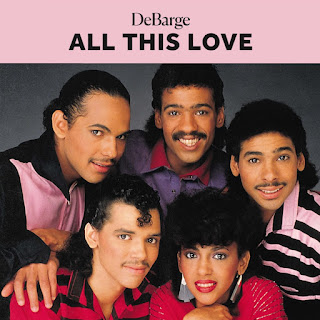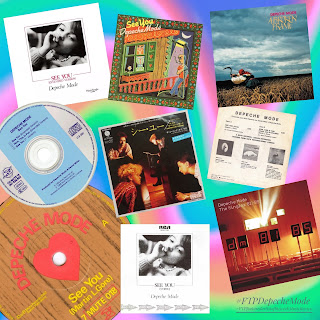DIANA ROSS - LOVE HANGOVER
Publicació: 16 de març de 1976
Llistes: Regne Unit: #10 EUA: #1 (2 setmanes)
"Love Hangover" és una cançó de la cantant Diana Ross, gravada el 1975 i llançada com a senzill del seu àlbum de 1976 "Diana Ross". Aquest va ser el primer èxit de música disco de Motown Records. El segell va trigar a acceptar el so, que venia de llocs com Miami, Nova York i Suècia, no de la seva Detroit. Hal Davis, un productor del segell, va pensar que era hora de provar la música disco, així que va muntar aquest tema, que canvia de l'obertura relaxada, lenta i fresca a un groove ràpid d'uptempo. Els músics de suport incloïen el pianista de The Crusaders Joe Sample, el guitarrista Art Wright, el baixista Henry Davis i el bateria James Gadson. Segons Davis, la sessió va tenir lloc a les 2 de la matinada.
A Diana Ross no li agradava gravar una cançó de música disco, així que el productor Hal Davis va fer tot el possible per posar el to correcte quan va gravar la seva veu. Va programar la sessió a la nit, quan Ross era més agradable, i va fer que l'enginyer Russ Terrana instal·lés llums intermitents a l'estudi. Abans d'gravar-la, Davis va fer que Ross es relaxés amb una copa de vodka. Quan va arribar el moment de gravar, es va treure les sabates i s'hi va posar, improvisant i passant-s’ho bé. En un moment donat, Ross va deixar escapar una rialla que es va quedar al disc. La veu era exactament el que estaven buscant.
Els pensaments de Ross sobre la sessió d'enregistrament es mostren a la biografia Diana del 2007 de J. Randy Taraborrelli: "Va ser una cosa espontània que vam gravar i si hagués de tornar-hi i fer-ho de nou, no ho podria fer. La música era jo i jo era la música. De la meva boca van sortir coses que ni tan sols esperava".
"Love Hangover" és una cançó molt sexual on Diana Ross canta sobre el sentiment després de fer l'amor i desitjant que no s'acabi. La cançó tracta d'estar tan consumit per l'amor i el desig que Diana no vol cap cura per als intensos sentiments que està experimentant. La lletra expressa un anhel per l'estat eufòric d'estar enamorat i la reticència a deixar anar aquelles emocions embriagadores.
El primer senzill de l'àlbum va ser "I Thought It Took A Little Time (But Today I Fell In Love)", una balada en la tradició de Ross. Aquesta va ser la decisió de Berry Gordy, ja que encara desconfiava de la música disco. Altres van considerar "Love Hangover" com un èxit, inclosos els DJ de clubs que van començar a posar-la. The 5th Dimension va gravar la cançó i la va publicar mentre "I Thought It Took A Little Time" pujava a les llistes. Això va cridar l'atenció de Gordy i ràpidament va publicar la versió de Ross de "Love Hangover" com a single. A la llista Hot 100 del 3 d'abril de 1976, van entrar ambdues versions, amb Ross al número 78 i The 5th Dimension al número 95. La mateixa setmana, "I Thought It Took A Little Time" va assolir el seu punt àlgid al número 47, sense pujar més, ja que Motown va treure la promoció per centrar-se en "Love Hangover". Amb la discogràfica darrere, la interpretació de Ross va assolir el número 1 al maig.
DIANA ROSS - LOVE HANGOVER
Released : March 16, 1976
Charted: UK: #10 US: #1 (2 weeks)
"Love Hangover" is a song by the Motown singer Diana Ross, recorded in 1975 and released as a single from her 1976 album “Diana Ross”. This was the first disco hit for Motown Records. The label was slow to embrace the sound, which was coming out of places like Miami, New York and Sweden - not Detroit. Hal Davis, a producer at the label, thought it was time to try disco, so he put together this track, which changes from the relaxed, slow, cool opening to a rapid uptempo groove. The backing musicians included The Crusaders pianist Joe Sample, guitarist Art Wright (overdubbed later), bass player Henry Davis and drummer James Gadson. According to Davis, the session took place at 2 am.
Diana Ross was not keen on recording a disco song, so producer Hal Davis went out of his way to set the right tone when she recorded her vocals. He scheduled the session at night, when Ross was most agreeable, and had engineer Russ Terrana set up flashing lights in the studio. Before sending her in, Davis had Ross relax with a drink of vodka. When it came time to record, she kicked off her shoes and got into it, improvising and having a good time. At one point, Ross let out a laugh that made its way onto the record. The vocal was exactly what they were looking for.
Ross' thoughts on the recording session are noted in the 2007 biography Diana by J. Randy Taraborrelli: "It was a spontaneous thing that we captured on record and if I had to go back in and do it again, I couldn't have. The music was me and I was the music. Things came out of my mouth that I didn't even expect."
"Love Hangover" is a very sexual song where Diana Ross sings about the feeling after making love, and wishing it wouldn't end. The song is about being so consumed by love and desire that Diana doesn't want a cure for the intense feelings she is experiencing. The lyrics express a longing for the euphoric state of being in love and the reluctance to let go of those intoxicating emotions.
The first single from the album was "I Thought It Took A Little Time (But Today I Fell In Love)", a ballad in the tradition of Ross. This was Berry Gordy's call, as he was still leery of disco. Others pegged "Love Hangover" as a hit though, including club DJs that started playing it. The 5th Dimension recorded the song and released it while "I Thought It Took A Little Time" was climbing the charts. This got Gordy's attention, and he quickly put out Ross' version of "Love Hangover" as a single. On the Hot 100 chart dated April 3, 1976, both versions entered, with Ross at #78 and The 5th Dimension at #95. The same week, "I Thought It Took A Little Time" reached its peak of #47, going no higher as Motown pulled promotion for it to focus on "Love Hangover". With the label behind it, the Ross rendition climbed to #1 in May.











































